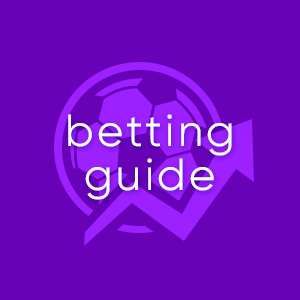The cash-out feature has really shifted sports betting from a static “set it and forget it” activity into a much more hands-on event. While some understand the basic concept of cashing out early, the rest get swept away in the heat of the moment, not taking full advantage of any mathematical edge they might be able to grab out of the bookmaker’s profit margins.
This comprehensive guide cuts through the marketing hype to reveal the mathematical realities behind cash-out betting. You’ll learn to identify high-value cash-out opportunities, avoid common psychological traps, and integrate cash-out decisions into a profitable long-term betting strategy. Most importantly, you’ll discover when to resist the temptation to cash out and let your winners run.
Cash-Out in Sports Betting
Cashing out lets you settle your wagers before events finish up, with payouts based on current win probabilities, rather than waiting for final results. This feature is pretty new, all things considered, and very different from traditional betting, where stakes were locked until completion.
Modern sportsbooks use real-time algorithms incorporating multiple variables to calculate cash-outs:
- Original stake and odds
- Current live odds and implied probabilities
- Market liquidity and betting volume
- Time remaining in the event
- Bookmaker’s profit margin (typically 5-15% built into cash-out offers
To put it simply, the cash-out amount reflects what the bookmaker believes your bet is currently worth, minus their built-in edge.
Pros and Cons of Using the Cash-Out Option
Advantages:
- Guaranteed returns: Lock in profits when ahead, eliminating the risk of late collapses.
- Loss mitigation: Recover partial stakes from losing positions instead of total losses.
- Parlay protection: Secure winnings from successful accumulator legs before risking everything on final selections.
Disadvantages:
- Reduced profitability: Cash-out values typically offer 85-95% of fair odds, eroding long-term profits.
- Psychological manipulation: Bookmakers strategically time cash-out offers to exploit fear and greed.
- Missed value: Early cash-outs prevent you from capitalizing on favourable position changes.
The main things you will want to take away from this are that cash-outs should be viewed as portfolio management, not profit maximization.
Key Factors to Consider Before Cashing Out
Live Match Dynamics and Momentum Shifts
Understanding game flow is important for making smart cash-out decisions. Different sports have distinct momentum patterns that can create some massive opportunities.
Soccer: Goals dramatically change cash amounts, but timing matters. A 1-0 lead after 20 minutes offers a different value than the same score at 80 minutes. Research shows that teams leading at halftime go on to win around 77% of the time overall (81% for home sides and 73% for away).
Basketball: Point spreads jump up and down wildly, especially with NBA games, creating rapid cash-out value changes. A 15-point lead in the first quarter means basically nothing, but the same lead with five minutes remaining? Yeah, that’s probably GG. NBA teams trailing by 15+ points in the final five minutes win just 0.3% of games.
Tennis: Momentum shifts are even more dramatic. For example, if a player dominating baseline rallies suddenly struggles with serve speed, it may signal an injury. Cash-out values in tennis respond faster than in other sports due to its individual nature and clear momentum indicators.
Injury, Red Card, or Game-Changing Events
Immediate response: When something game-changing comes up, cash-out markets will most likely pause to give the bookmaker some time to adjust lines. A savvy bettor recognizes these suspension periods as information advantages. If you’re watching live and notice an injury before broadcasters pick it up, you may have 30-60 seconds before markets adjust.
Red-card mathematics: In soccer, a red card changes win probabilities by 15-25% depending on timing and score. A red card for the team you’re backing when leading 1-0 after 30 minutes suggests immediate cash-out consideration.
Remaining Legs in Parlays and Risk Management
Most bettors cash out parlays too early, falling victim to what they see as free money.
Imagine you have a four-leg parlay with three legs won and are offered an $800 cash-out on a potential $1,200 win. The implied probability suggests that the final leg has a 67% chance of winning. If your analysis gives the final leg a better than 67% chance, holding is mathematically better.
Most modern sportsbooks will also offer partial cash-outs, which is a meet-in-the-middle type of strategy where you secure some profit while maintaining upside exposure.
Common Cash-Out Scenarios and What to Do
Scenario 1: You back Manchester United +1.5 goals against Manchester City. United scores in the 15th minute, and your cash-out offer jumps to 70% of potential winnings. .
Recommended action: Hold. Early goals in soccer often trigger emotional cash-out offers. Historical data shows teams scoring in the first 15 minutes maintain their lead only 63.98% of the time – but your handicap bet only needs them to avoid losing by 2+ goals.
Scenario 2: Your five-team NBA parlay has four winners with the Lakers -3.5 remaining. You’re offered a $1,500 cash-out on a $2,000 potential win.
Recommended action: Depends on your Lakers analysis. The offer implies a 75% Lakers probability. If your model shows higher confidence, hold. If you feel the line moved against you, cash out.
Scenario 3: You backed Novak Djokovic at -150 pre-match. He wins the first set 6-1 but struggles physically in the second set, losing 6-3. A cash-out offers 60% of the potential profit.
Recommended action: Consider cashing out. Tennis momentum shifts often signal injury or fatigue issues that casual observers miss but sharp bettors identify early.
Cash-Out Tools and Features at Top Sportsbooks
Key features to find:
- Partial cash-out: Allows portfolio-style position management
- Auto cash-out: Set predetermined profit or loss thresholds
- Cash-out history: Track your cash-out performance vs. letting bets run
Red Flags: Avoid books that frequently suspend cash-outs during crucial moments or offer significantly below-market values (more than 15% discount to fair odds).
Advanced Strategies for Smart Cashing Out
Hedging with a Cash-Out + Opposite Bet
Instead of accepting a low cash-out offer, you can always place an opposite bet to create a guaranteed profit while maintaining upside potential. It’s a little like arbitrage betting.
For example, imagine you have $100 on Team A at +200 (potential $300 total). Team A takes an early lead, and the sportsbook offers a $180 cash-out. Instead, bet $80 on Team B at current odds of +120. Results:
- If Team A wins: $300 – $80 = $220 profit
- If Team B wins: $96 – $100 = -$4 loss
Using Expected Value Calculators or Betting Models
The vast majority of advanced bettors will also look to compare cash-out offers against expected value (EV) calculations using this formula:
Expected Value = (Win Probability × Full Payout) – (Loss Probability × Stake)
For example, you placed $100 on the Raptors at +180 odds (potential $280 total return). The Raptors are now leading, and the sportsbook offers you a $200 cash-out. Meanwhile, your analysis suggests the team have a 70% chance to win.
- Win scenario: 70% × $280 = $196
- Loss scenario: 30% × $100 = $30
- Expected Value = $196 – $30 = $166
- Cash-out offer: $200
- Difference: $200 – $166 = $34 (20% higher than EV)
Decision: Take the cash out. The offer exceeds your calculated EV by more than 5%, making it mathematically advantageous.
Helpful tools:
- Action Network’s EV calculator
- Custom Excel models with implied probability formulas
Setting Exit Rules Before Placing Bets
You really need to make sure you’re heading out there with a plan and set some cash-out criteria before placing wagers to avoid emotional decision-making.
- Profit targets: Cash out when offered 80%+ of potential winnings.
- Loss limits: Cash out when stake recovery exceeds 40%.
- Time thresholds: Different cash-out aggressiveness based on how much game time is left.
- Momentum indicators: Specific scenarios that trigger automatic cash-out consideration.
The 80/40 Rule: cash out when offered 80% of your potential profit or when you can recover 40% of your stake from a losing position.
Final Thoughts
Cash-out betting is neither inherently good nor bad. It’s more of a tool that can enhance or harm your profitability depending on how you use it. The most successful bettors view cash-outs as risk management, not profit enhancement.
Key principles for success:
- Mathematical foundation: Base decisions on expected value, not emotions.
- Selective application: Use cash-outs sparingly, primarily for risk reduction in volatile situations.
- Long-term perspective: Accept that frequent cash-outs will reduce overall profitability.
- Discipline: Stick to predetermined exit rules rather than making impulsive decisions.
Responsible Gambling
Cash-outs can support safer gambling by limiting losses and protecting profits, but they can also encourage risky behaviour if misused. While these features offer more control over your bets, they don’t eliminate the fundamental risks of sports betting and shouldn’t be viewed as a safety net that justifies larger or more frequent wagers.
That’s why it’s important to use the tools available for managing time and money spent on betting:
- Deposit limits: Set daily, weekly, or monthly spending caps.
- Time limits: Use session reminders and automatic logouts.
- Reality checks: Enable pop-up reminders showing time spent and money wagered.
- Self-exclusion: Use temporary or permanent account restrictions when needed.
- Loss limits: Enable automatic stops when losses reach predetermined amounts.
If you’re experiencing problems with gambling, help is available through these Canadian resources:
- Problem Gambling Helpline: 1-888-230-3505 (24/7, free, confidential)
- Responsible Gambling Council: responsiblegambling.org
- Centre for Addiction and Mental Health: camh.ca
- Gambling Therapy: gamblingtherapy.org (online support)
FAQs
Is it better to cash out early or wait?
Why does the cash-out value drop fast?
Can I get a full payout if I wait?
Is cashing out bad in the long run?





 Giorgi Natsvlishvili
Giorgi Natsvlishvili 